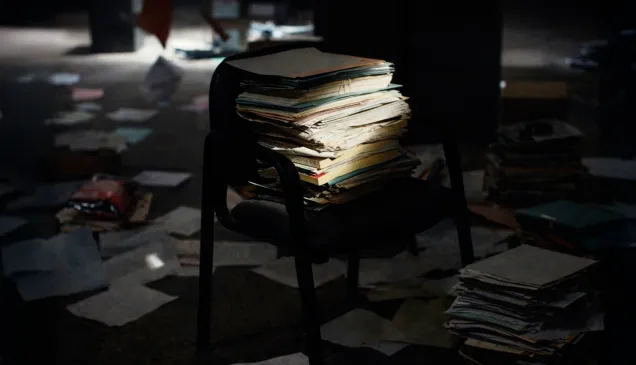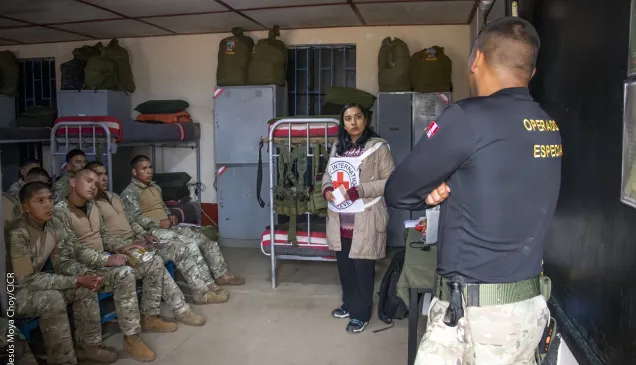Día de los Muertos and COVID-19 in Latin America: Honouring the dead during a pandemic
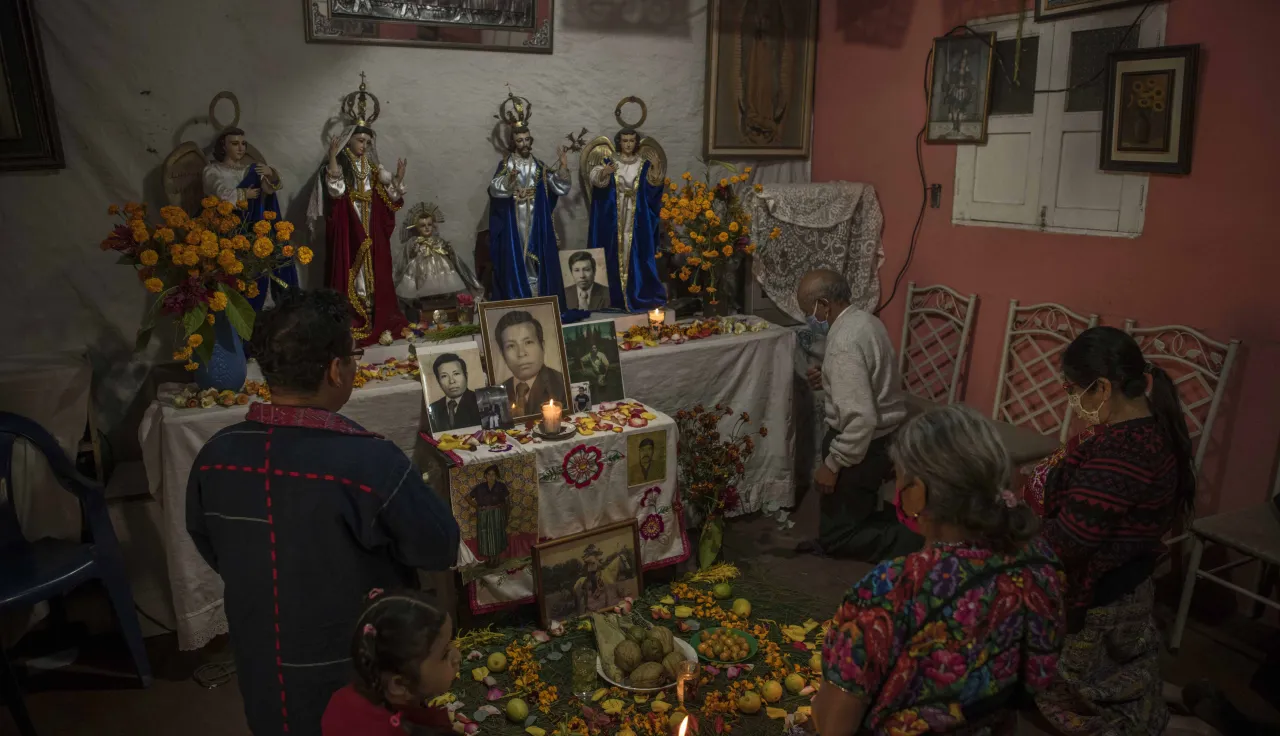
Dia de los Muertos (Day of the Dead) is celebrated the world over. This festival honouring the dead offers us the opportunity to reflect on the various impact COVID-19 has had on the cultural and religious rites of communities across Guatemala, Mexico and Peru.
Burial rituals are fundamental to the identity of many communities. Claiming over 1 million lives so far, COVID-19 has considerably disrupted the way funerals are traditionally carried out around the world. The rules designed to protect the living have erected barriers to grieve the dead.
This feature by National Geographic, supported by the International Committee of the Red Cross, takes a closer look at the profound impacts – cultural and religious – Covid-19 has had on Guatemalan, Mexican and Peruvian communities.
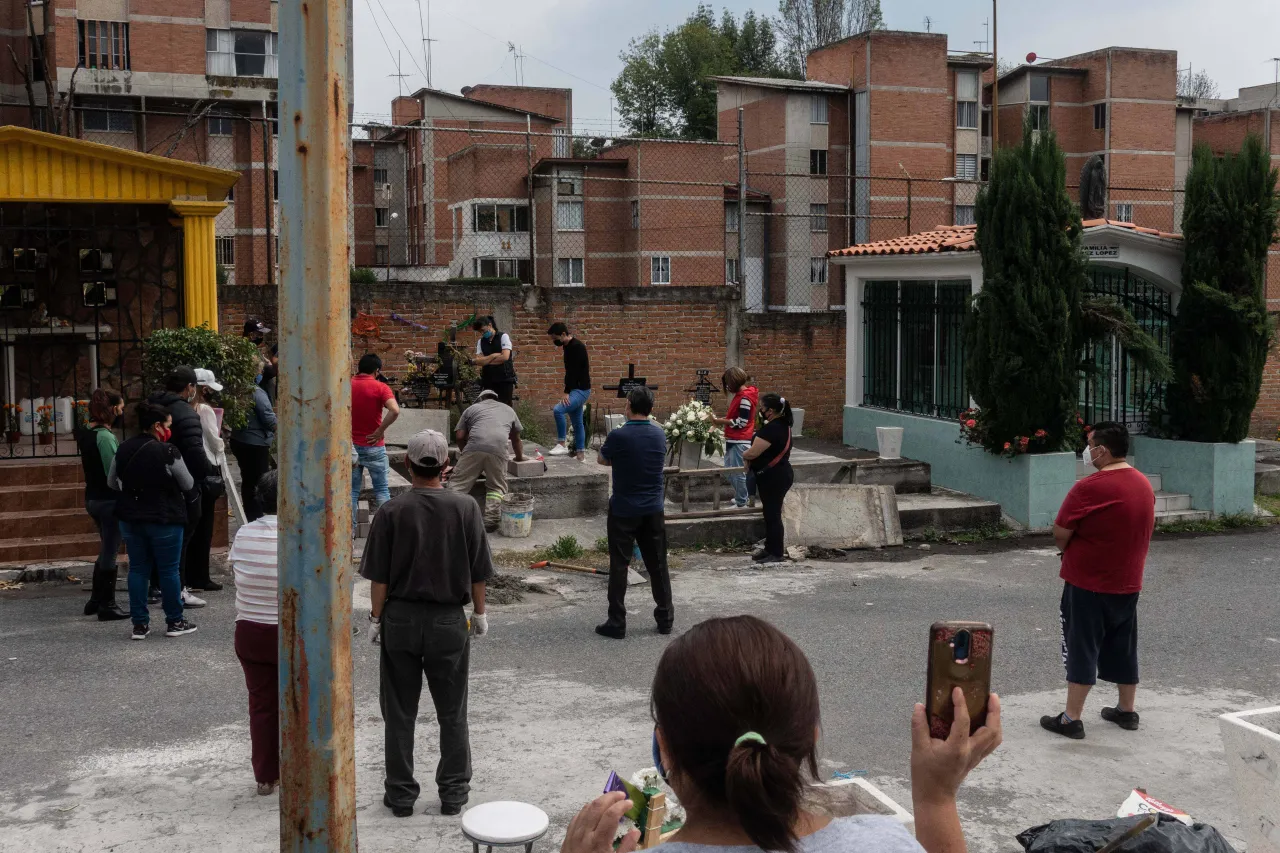
Maria de Jesus Linares video-calls her family members so they can virtually attend her sister-in-law’s burial ceremony. Covid-19 restrictions prevented them from coming. “To add to this sadness, our family and friends can’t be with us during these difficult moments. We won’t be able to come on November 2nd because the cemetery will close tomorrow. It’s just sad". Mexico City, Mexico.
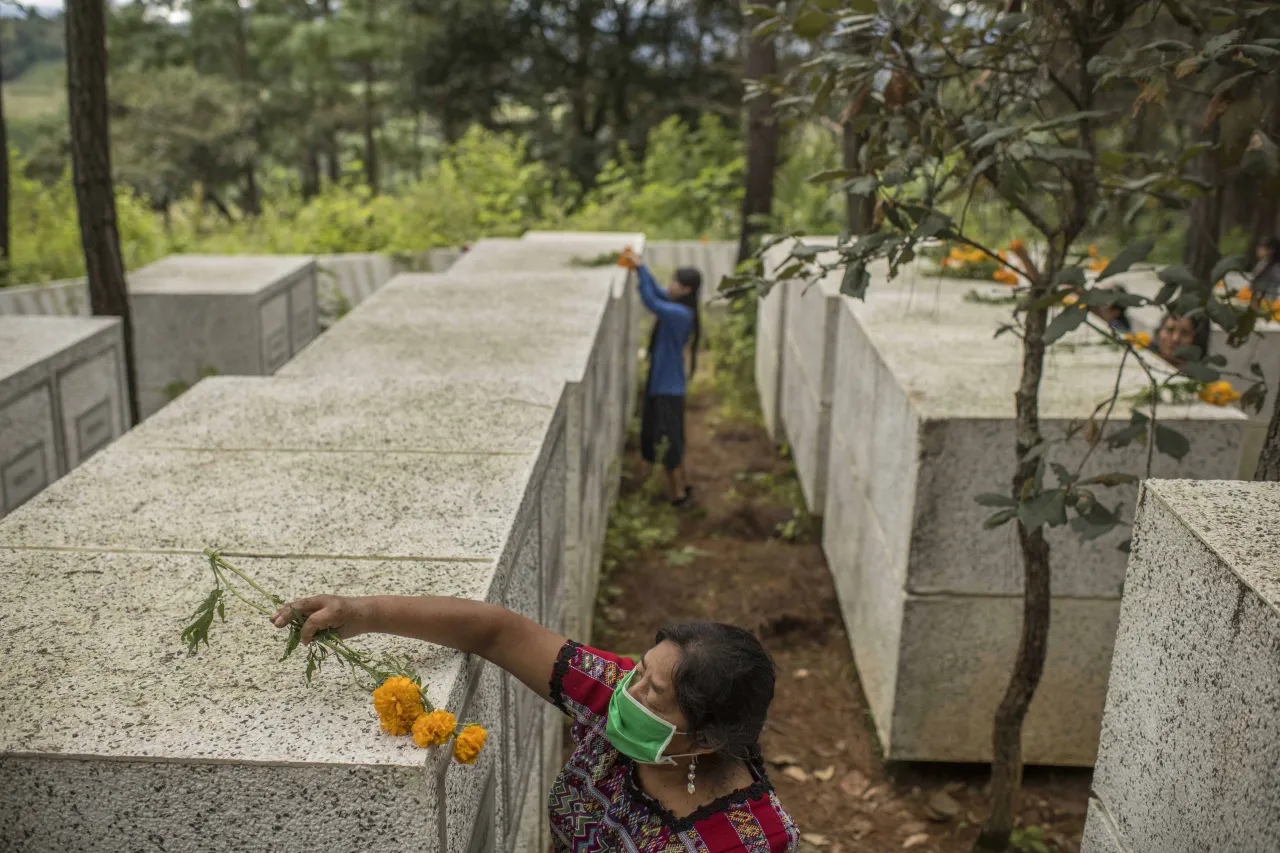
Rosalina Tuyuc, 64, and her family members decorate the graves where the remains of 220 victims of the armed conflict were found by forensic anthropologists. During the Civil War, the army took Rosalina's father and husband. To this day, Rosalina and her family still don’t know the fate of their loved ones and continue to search for their remains.
Century-old traditions of gathering around drinks, songs and the sharing of memories, or of executing wills and visiting graves, all point to the belief that, in many cultures, the dead are not disconnected from us forever; instead, they remain an integral part of communities and society.
What is it that leads us to place such a degree of importance on the dead? Why do we make such efforts to ensure a respectful resting place for those that have departed this life? I believe that the importance we place on the dead reflects our humanity at its very core.
Oran Finegan, ICRC Head of Forensics
It is particularly visible in Latin America, where traditions related to the deceased are strong. Bereaved by the hundreds of thousands of people who have been reported missing in connection with past and present armed conflicts, continued armed violence, the constant tide of migration and natural disasters, the region's COVID-19 death rates are also among the highest.
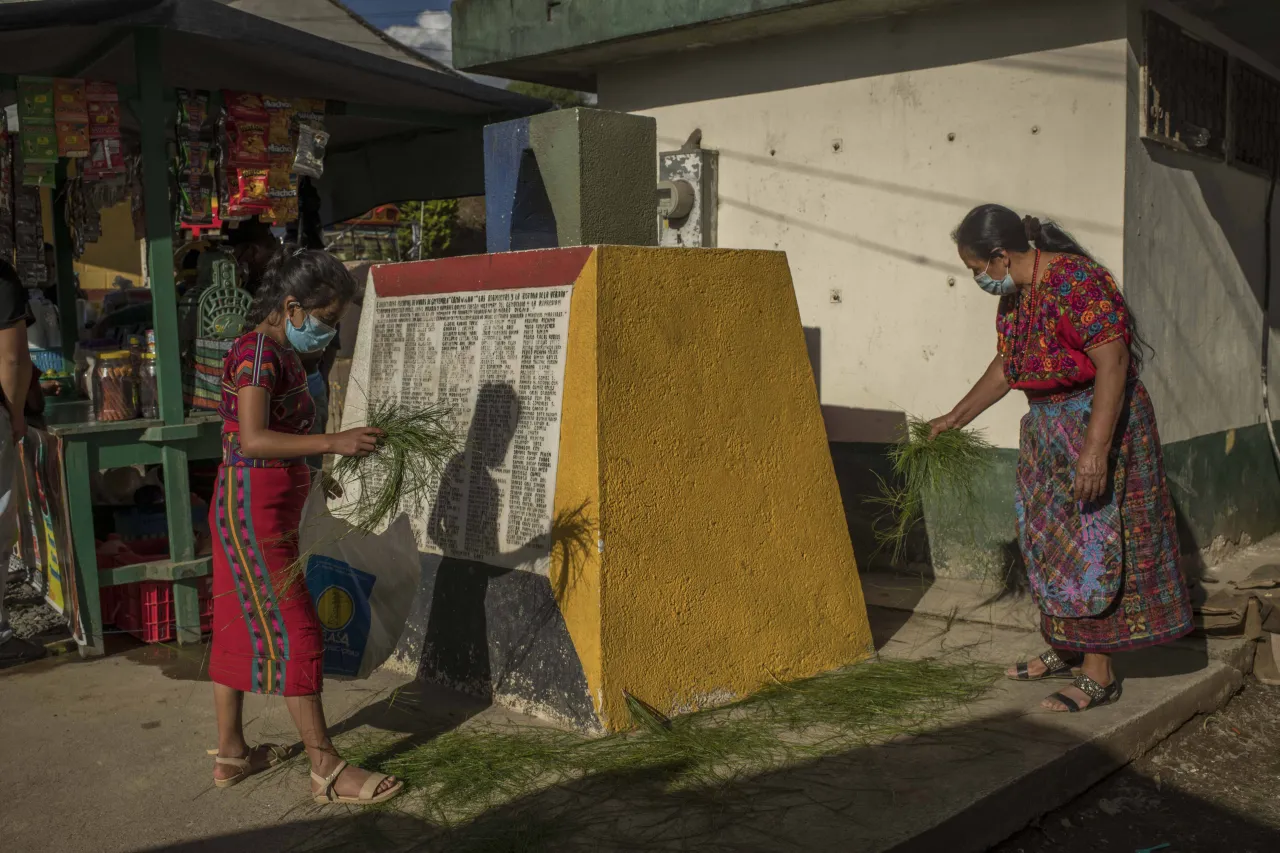
Carmen Cumes, 64, and her granddaughter stand at the marble plaque that lists the names of people found in a former army camp in 2003. Most of them weren't identified, and among them was Carmen's husband, Felipe Poyón.
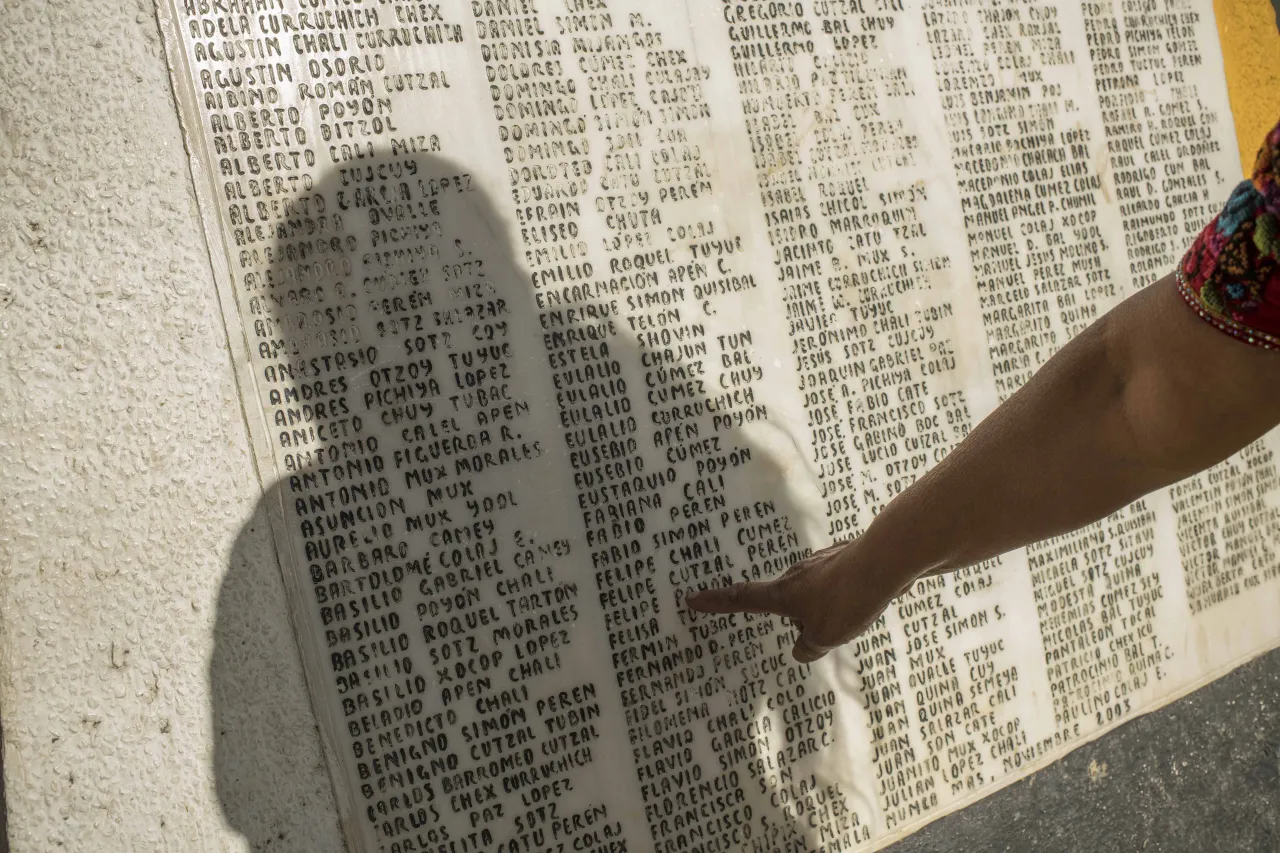
"Every year on this date we organize a small procession from here to the place where the remains of our loved ones were found in 2003,” she said. “This year wasn't possible - we are sad.”
The COVID-19 crisis is a major cause of distress for families who could not even visit loved ones in the hospital and who then died. To compound the grief, some families couldn't locate the remains of their deceased relative because some mortuaries have been overwhelmed. Imagine losing a parent and then not being able to find and bury them. It's happening, and it carries deep consequences for people's mental and physical well-being.
Sophie Orr, Regional Director, Americas
The pandemic and preventative measures enforced to contain it have impacted funeral rites differently across cultures and communities. In Guatemala, Mexico and Peru, Día de los Muertos is widely celebrated as an opportunity for friends and family to honour their departed loved ones by going to the cemetery and giving offerings that help them along in their journey.

Martha Romero died from Covid-19 on August 19th. Her husband Felipe Palma and her son Enrique Palma, along with other family members also contracted Covid-19, but she is the only one who didn’t recover. “My mother will not just come for a couple of tangerines, we need to make her a big altar with all the things that she liked. (…) We cried a lot while making this altar since it happened recently, and it is very hard but it’s also part of the process to accept that she is gone" says Enrique.
Every day, ICRC and National Societies see the respect that different societies give to the dead through their customs and formal ways through their national legislative frameworks. Underlying this honour and respect for the dead is a recognition of human dignity.
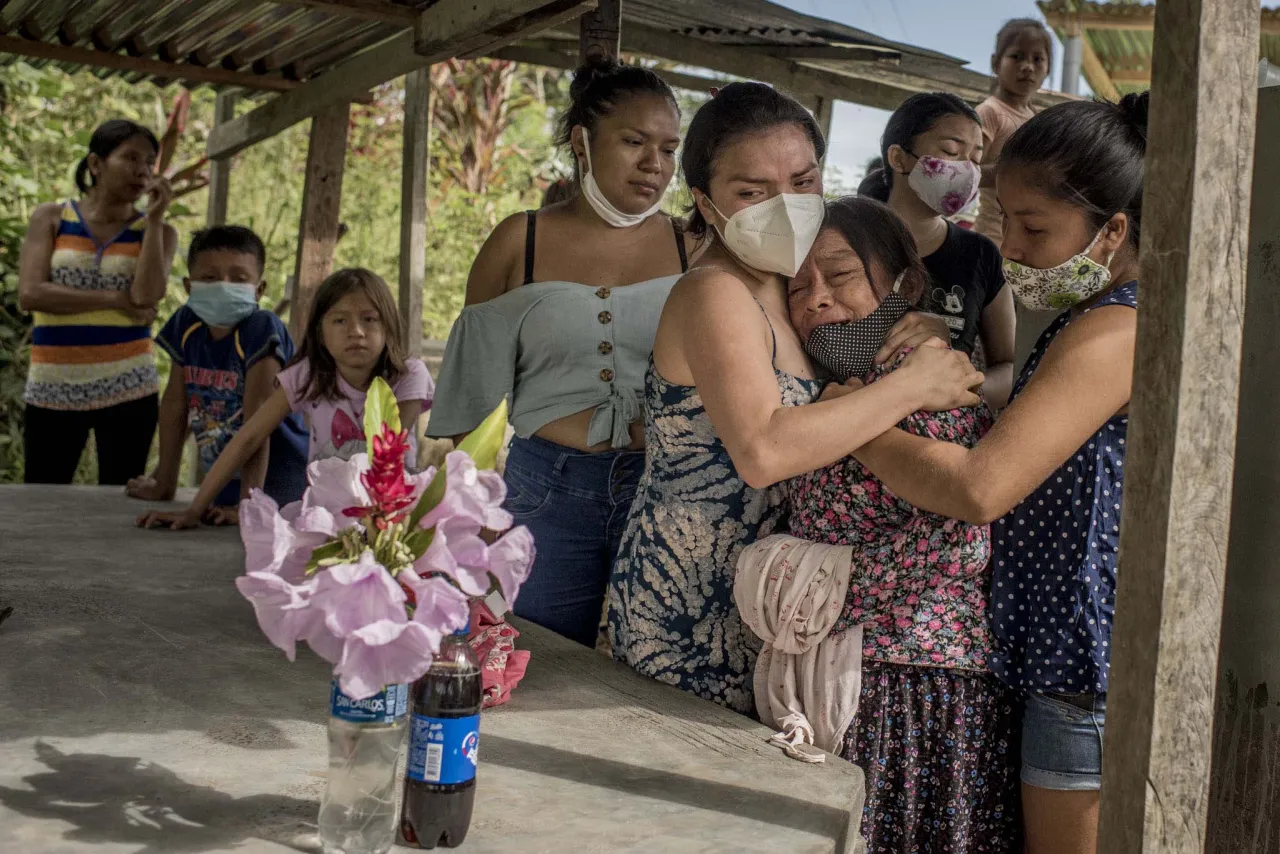
Teresa Kawasa is comforted during the funeral of her mother Julia Sebastian War, who died at 102 years old, at her home in Imacita, in the Amazon region of Peru. October 29, 2020.
The work being done to support the dignified burials and the ceremonies that are central to spiritual life is crucial, no matter the circumstances. Often people don't see the importance of forensics until the death of a mother, a brother, or a child. Then, how a body is handled is of outmost importance.
In conflict zones and regions affected by armed violence, where limited capacity to properly handle high numbers of deaths can make the situation even more dire, as well as in other situations of violence, the ICRC engages with governments to ensure dignified burials can continue. We also work together with the communities, National Societies and local authorities to guarantee the appropriate sanitary steps are followed to limit the risk of contamination.
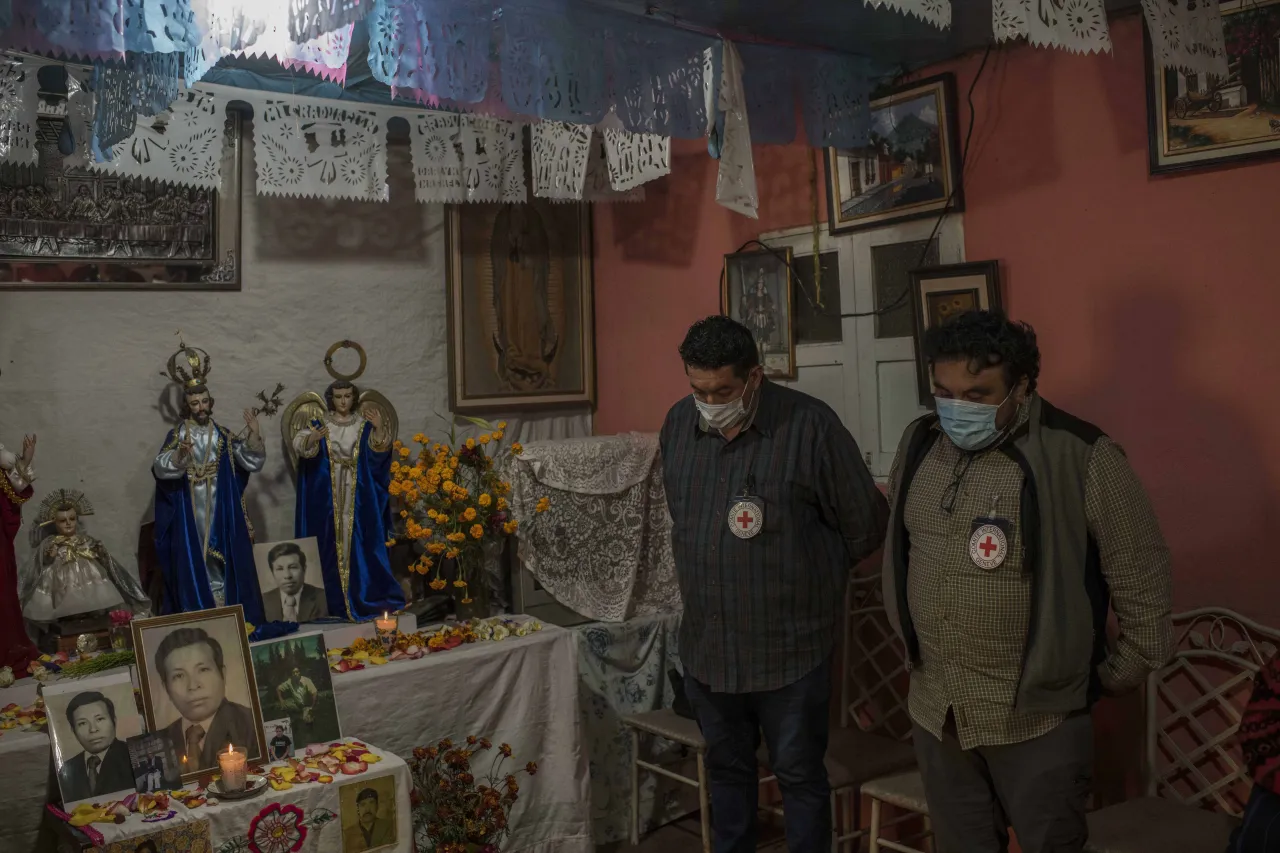
ICRC delegates Luis Pedro Dominguez Rosales and Erick Raul Garcia Quinones attend the honouring of Basilio Sotz Morales, who went missing in 1982, in San Juan Comalapa, Guatemala. His remains were found in 2003, but he was only identified in 2014 through a DNA test.
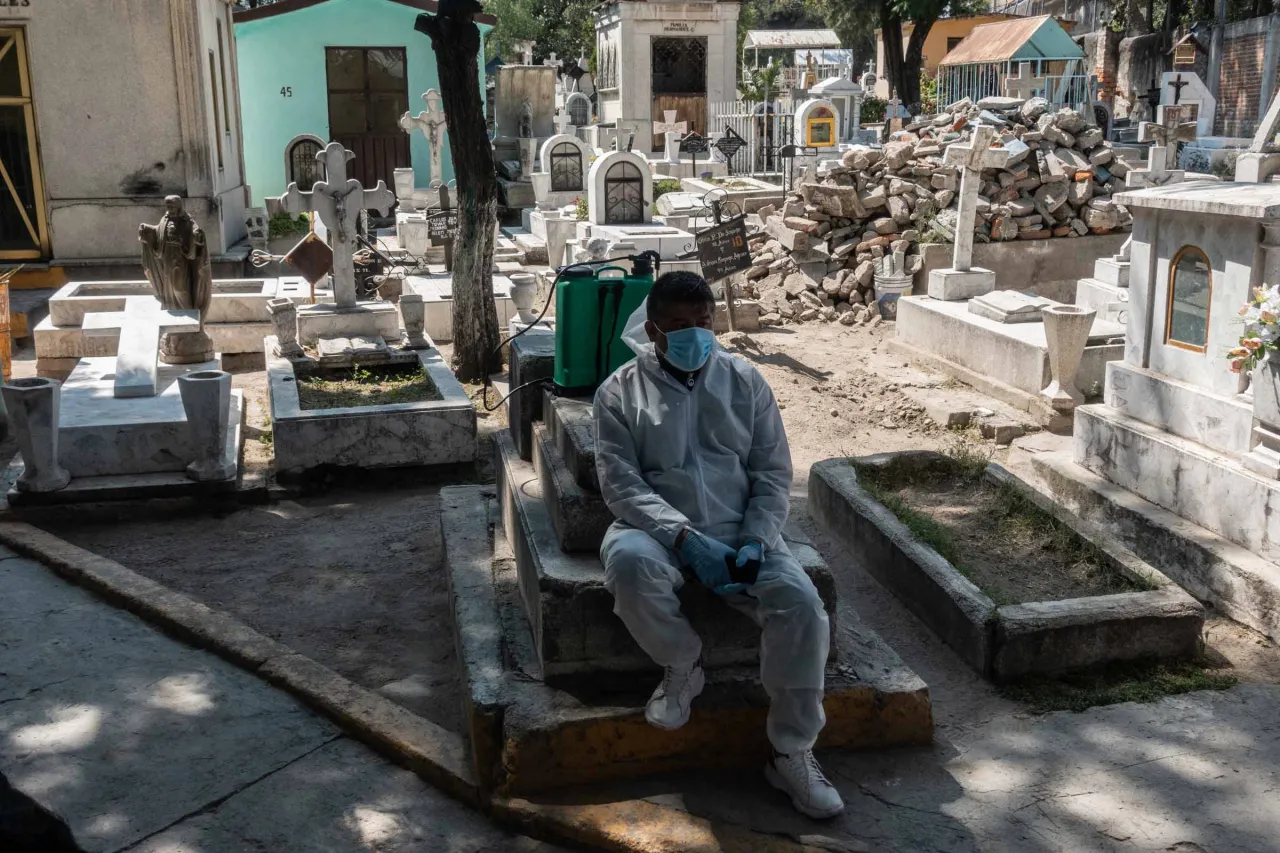
Joaquin Ramirez is a guard and keeper at La Loma Cemetery, like his father and his grandfather before him. "I love what I do,” he said. “It is sad to see the cemetery empty this year, but it is for everyone’s safety. I have to turn down many people who want to come and visit the graves of their deceased loved ones, but they understand the reasons." Tlalnepantla de Baz, Mexico State.
International humanitarian law and international criminal law provide for the respect of mortal remains as a concretization of the general obligation to protect the dignity of persons, with relevant obligations towards them. The rights of families of the dead to mourn, visit gravesites and generally allowing them to perform burials in accordance with their beliefs, has also been recognized by International Human Rights' courts and tribunals.
The ICRC Forensic Unit honours deceased victims and their families by promoting the proper and dignified management of the dead, reminding concerned actors that the dead should have their identities returned to them, and that their remains should be returned to their families.
More:
- Read more about the Protection of the dead through forensic action
- Download the Guidance and recommendations for authorities and forensic institutions for the dignified management of the dead during the COVID-19 crisis.
- Read more about the Missing in Latin America
- Watch What happens if cemeteries can't cope
- Watch Forensic work, restoring family links

